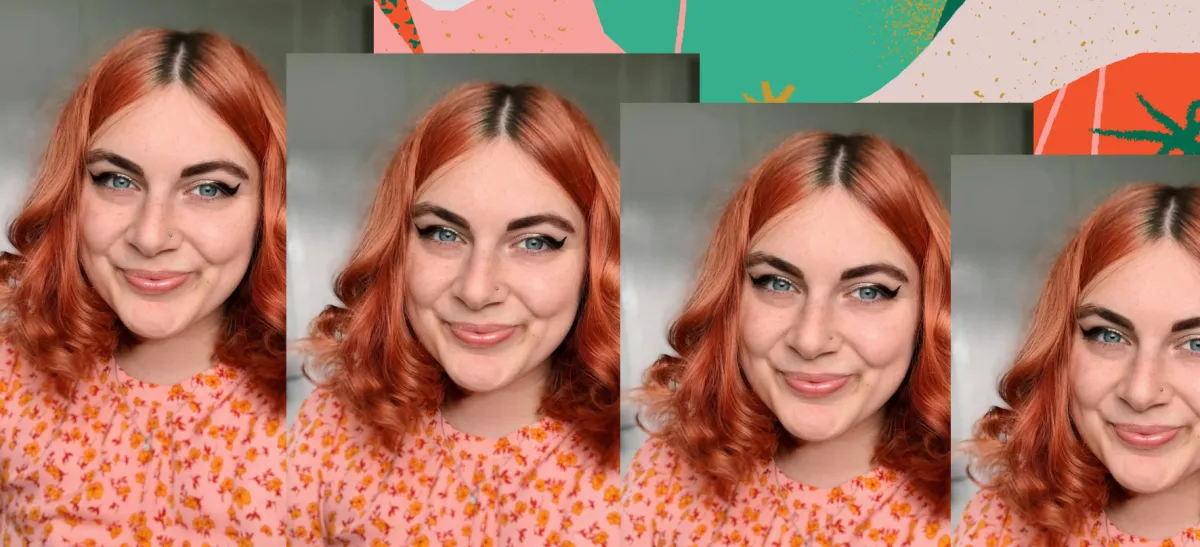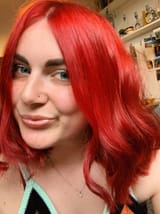My Coming Out: A Chat with Eleanor Noyce
“I would like to challenge the assumption that it is necessary to come out. I want to live in a world where heterosexuality isn’t assumed, and where LGBTQ+ people can casually date partners and subtly announce their sexuality or gender identity without a big announcement.”

Access the Audio Read version of this article directly on Spotify for Podcasters.
Welcome to a new instalment of My Coming Out, an interview series sharing the unique stories of people all over the world, who came out as lesbian, gay, bisexual, transgender, queer, intersex, asexual, or questioning.
This month we chat with Eleanor Noyce (she/her), a 23 year-old freelance journalist, who identifies as bisexual. Eleanor’s work can be found on Metro, Refinery 29, Diva, and The Spill. You can connect with Eleanor on Twitter.
The Spill: Hi Eleanor! We like to ask everyone first, when did you ‘know’?
Eleanor Noyce: If I’m being honest, I probably knew when I was about twelve. However, I didn’t come out until I was eighteen, and I didn’t tell my family until I was twenty.
TS: When did you come out, and why?
EN: I came out to my friends at eighteen as I needed to start being honest with myself. It had gotten to the point where I would “come out” every time I was drunk and forget I had said anything. I told my mum when I was twenty, as I’d made a promise to myself and my then-girlfriend that I would.
TS: How did you do it?
EN: I sat my mum down in the kitchen and told her, and I told my friends randomly over text. It didn’t feel like such a big deal with them as our generation is quite liberal.
TS: How did people react when you came out?
EN: Honestly, no one was surprised. I hate that “I knew already” trope, but everyone really did know. My mum quite literally said: “I’m your mother - I know you better than anyone. Of course I know.”
TS: What were your fears or concerns before you came out?
EN: I was scared that my mum would be confused by my bisexuality, since she’s of an older generation than me, which hasn’t had such enhanced understanding of gender and sexuality. She was so great, though, and has made such an effort to understand LGBTQ+ issues.
TS: Do you have any frustrations or concerns about your community that you would like to address?
EN: I find it quite frustrating that biphobia is still rampant, even within the LGBTQ+ community. I often feel regarded as “less” queer as I currently have a boyfriend, and I do not feel that queer spaces reflect the diversity of queer identity. There are spaces for gay men and a few lesbian bars, but nothing to cater to people who identify outside of this binary.
TS: How did coming out affect your life?
EN: It helped me to live a more honest, authentic existence. I didn’t feel that I had to hide anymore, whereas before, I was running in circles to try and hide my sexuality from my family. It’s also impacted my style - I’m much freer in what I wear now, and I enjoy wearing vibrant colours and patterns. I would never have done this before coming out, and living freely as a bisexual woman has done wonders for my confidence.
TS: What are you the most grateful for now that you’ve come out, and about your community?
EN: I’m most grateful for acceptance from my family. Bisexuality isn’t always easy for older generations to understand, but my family have been nothing but brilliant. I’ve felt so loved and embraced.
TS: Do you have any regrets about how you came out, or other areas of your life related to your coming out?
EN: I regret not doing it sooner. All those years of covering up my sexuality meant that I couldn’t share certain experiences with my mum in particular - I wish I’d been able to take her to Pride sooner.
TS: What would you tell your younger self, before you came out? Is there anything you wish you had known?
EN: That it would all be okay, and that it was okay that I felt different. My family would be accepting regardless.
TS: What advice would you give people going through this, whether they are scared of coming out, going through this alone, or unsure of how to do it?
EN: If it’s safe for you to come out, then I would say, be as honest as possible. Lay all your feelings out, if that helps you, as it’ll help your family to understand that this is a very emotional process for you. If it’s not safe for you to come out whilst living at home, then wait until you’re safely and securely moved out, and have been living independently for a period of time. If it’s not safe for you to come out at all, then prioritise your safety. Try to engage with the community where possible, and live your authentic life whilst staying safe.
TS: What are you the most proud of?
EN: I’m most proud that I’ve been able to channel my identity into my journalism. Since coming out, I’ve been able to platform important LGBTQ+ issues and represent my community.
TS: If you could, what would you like to change to make this a better experience for people? And to improve life for the LGBTQIA+ community?
EN: First of all, I want to live in a world where no country criminalises being LGBTQ+. I have hope that one day, this will happen. I would also like to challenge the assumption that it is necessary to come out. I want to live in a world where heterosexuality isn’t assumed, and where LGBTQ+ people can casually date partners and subtly announce their sexuality or gender identity without a big announcement. Heterosexual society instructs us that “coming out” encompasses the entirety of LGBTQ+ existence, and it doesn’t. It’s also not just one event - I come out multiple times, to employers, new friends, new acquaintances.
TS: What advice would you give to people for them to be a supportive and effective ally when a loved one is coming out to them?
EN: The best thing to do is listen. Be supportive, and don’t ask too many invasive questions. Your loved one isn’t a pamphlet for LGBTQ+ issues, so do your research online where you can.
TS: What should people not do when someone comes out to them?
EN: When someone is coming out to you, don’t interrupt or say anything like “well I knew that already.”
TS: Are there any resources, organisations, websites, or any content you would like to share, that helped you personally or could help others?
EN: DIVA mag produces some great content specifically for queer women and non-binary people, which is a welcome tonic in a media landscape saturated with LGBTQ+ journalism specific to gay men. Stonewall is also excellent for support, as well as facts and figures. AKT is an LGBTQ+ homelessness charity, should you or anyone you know be homeless or be at risk of homelessness after coming out. Mermaids is very useful on gender identity and trans issues and helps trans kids specifically.
In terms of LGBTQ+ role models to follow on social media, I would suggest following Shon Faye, Olly Alexander, Daisy Jones, Amelia Abraham, Jamie Windust, Paisley Gilmour, Tanya Compas, Fox Fisher, Juno Dawson, Juno Birch, Ugla Stefanía Kristjönudóttir Jónsdóttir (Owl), Carrie Lyell, Travis Alabanza, Bimini Bon Boulash, and Eve Hartley.
TS: What are your hopes for the future, or projects that are meaningful to you?
EN: I hope to pursue my journalism, and tell more LGBTQ+ stories, as those are the projects I find the most meaningful.
TS: Is there anything else you would like to add and share with the rest of the world?
EN: Be proud and be you!
To share your coming out story with us, please contact team@thespillmag.com






